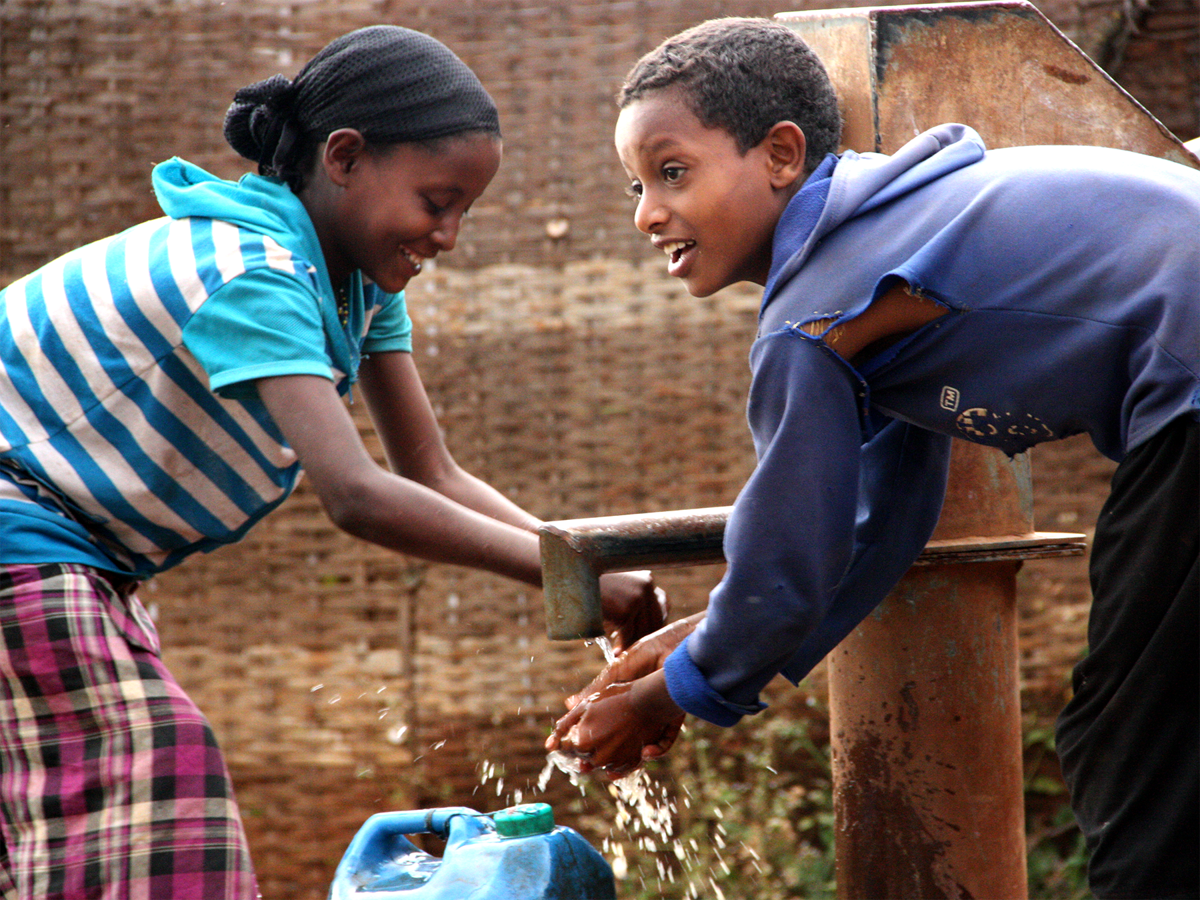
A lot has happened since our last update. Our WASH project in Ethiopia is progressing well: The Homecha spring has been tapped and the work to provide drinking water to over 7,200 people is going well!
In a nutshell: What’s new?
- The construction of the water kiosk in Hawasso village is finished
- All households have built their own toilets
- Native tree species are now being planted for the protection and sustainable use of the Homecha spring
- There are 29 new trainers for hygiene promotion
The drinking water project at a glance
- With every cup of coffee you contribute to providing 37,100 people in Ethiopia with access to clean drinking water.
- The project takes place in the Limu region, Ethiopia, in various villages. Partner in the implementation on site is the Welthungerhilfe.
- The project should be fully implemented by the end of 2017.
- Project volume: 680,000 € – 437,000 € of which has already been financed.
The project consists of 3 sub-projects
- Clean drinking water for Doyo Bikilla: In the meantime, the Homecha spring is fully financed. Currently you can support the treatment of the Shaki spring.
- Sanitation for the cooperatives: The rehabilitation and construction of toilet facilities for more than 18,900 people improves the hygiene conditions enormously.
- Hygiene training for the coffee cooperatives: We help the people of the coffee region deal with clean drinking water and the issue of hygiene.
Together with our WASH team, residents expand the Homecha Source
The Homecha spring is located between the Kebeles Doyo Tolie and Doyo Bikila and will soon be able to supply 7,200 people with clean drinking water. Two water reservoirs, where the water is collected, have already been completed. The drinking water is piped to the water kiosks, where residents can collect their water. The construction of the water kiosks in the villages of Melko and Haro shows great progress, and in Hawasso it has even been completed! The pipeline has also been installed, it now connects the 100 sqm water reservoir to the Homecha spring.
In the video you can see a scene during the installation of the pipes. The villagers can hardly wait to finally use the source.
The source must not be overused
To ensure that this does not happen as a result of the new pipes and that the spring possibly runs dry, the flow of water through the pipes is regulated in such a way that the groundwater level is always equalized. This ensures that water is replenished. The community also agreed with the agriculture department to plant native trees on the land around the spring. Previously, when teff (a type of millet) was grown on this land, the soil was prone to landslides and contamination. The trees that will grow there will then naturally fortify the soil with their roots. This prevents landslides that could harm the spring.
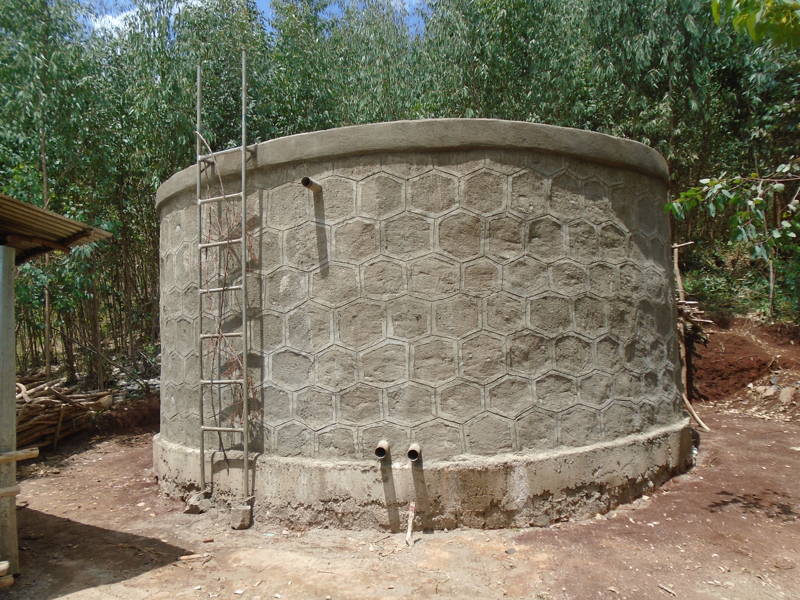
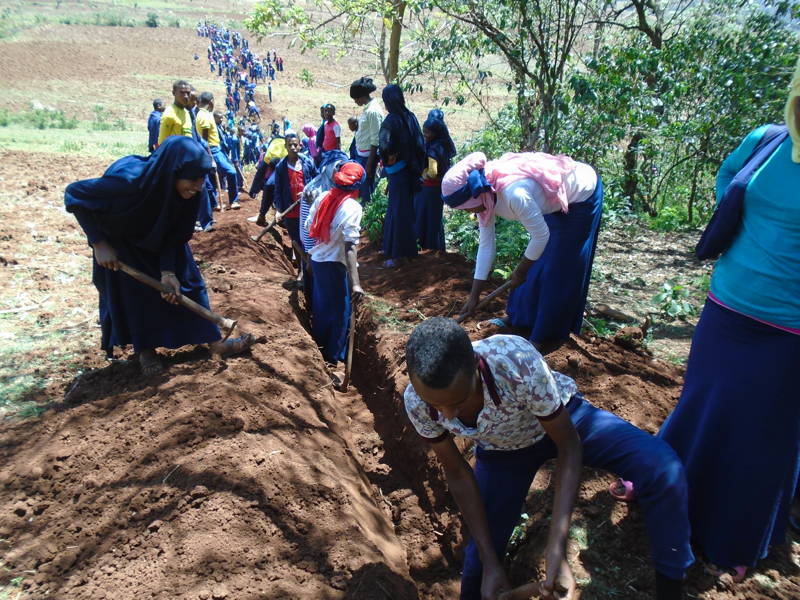
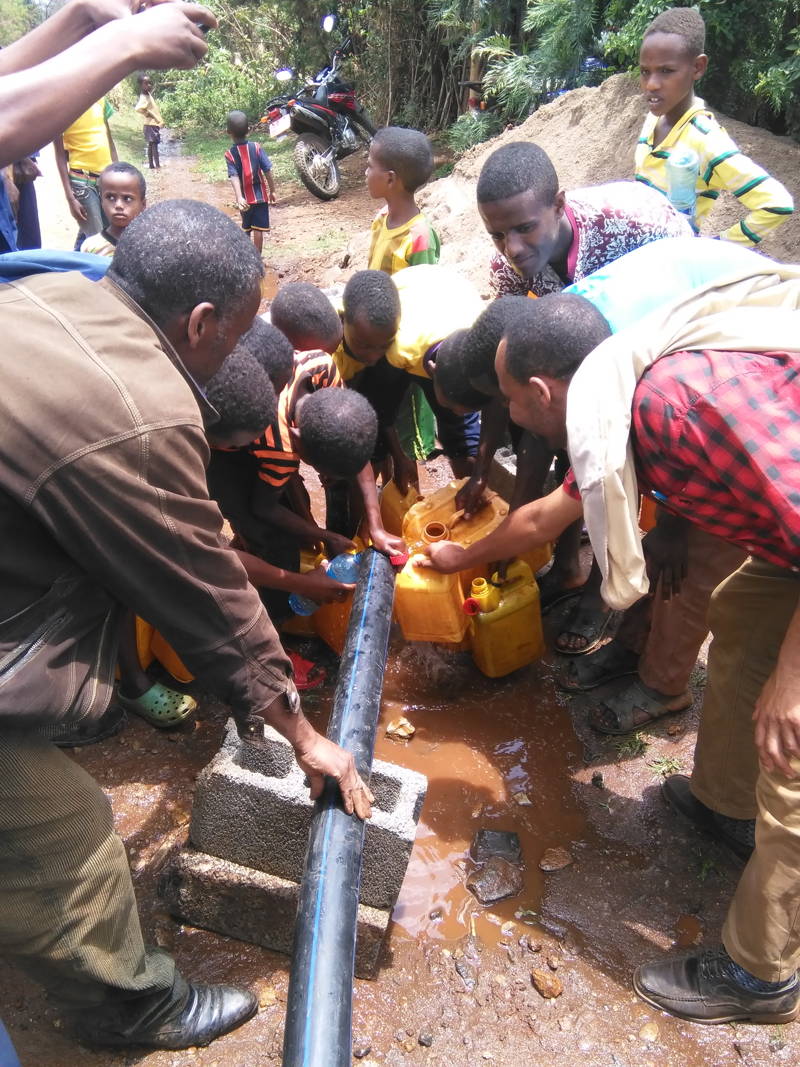
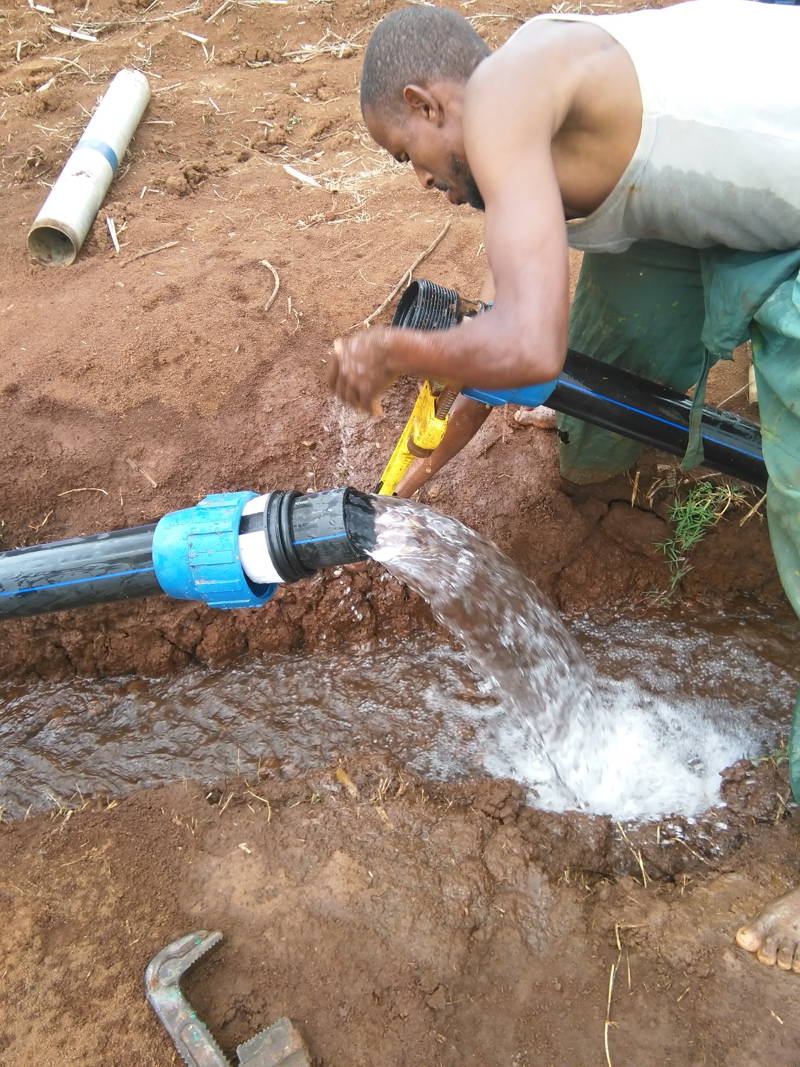
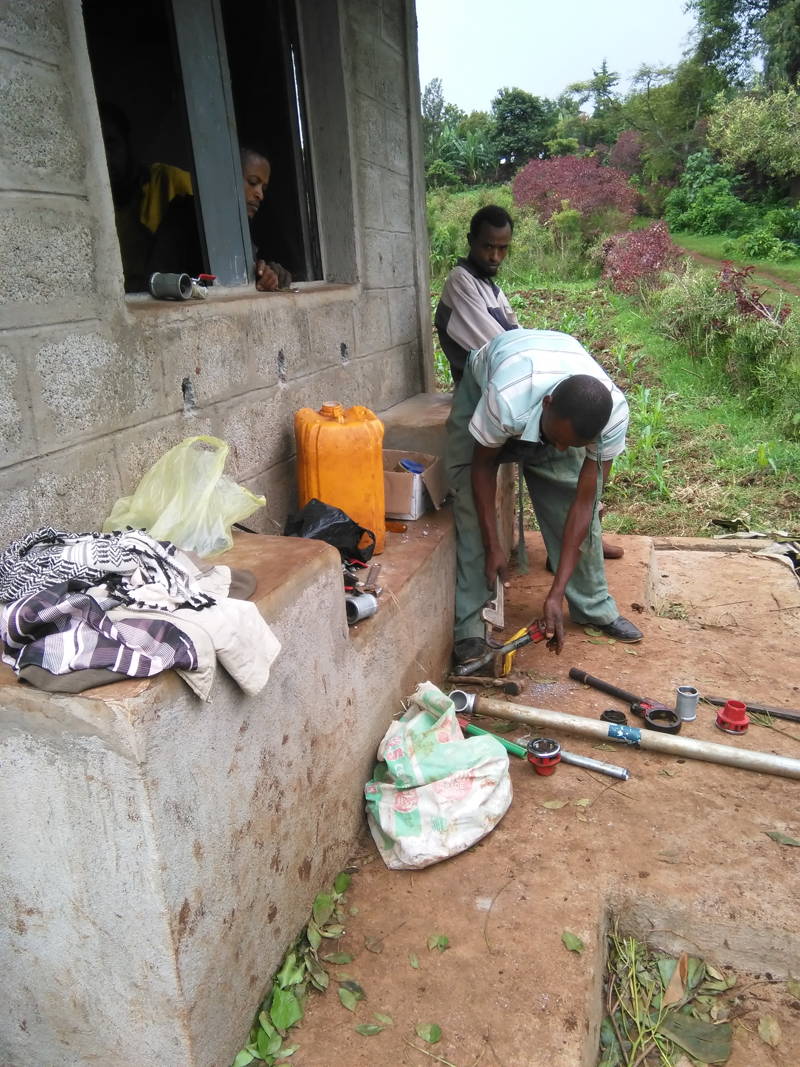
Native trees to protect the water source
Based on local community interest and recommendations from the local agriculture department, seeds from four native trees were provided by the project. A nursery will take care of growing the plants. Appropriate tools, such as watering cans and rakes, have already been purchased for the nursery. Pits for planting have also already been dug. So everything is already prepared and maybe soon the first young plants will grow at the Homecha spring!
Hygiene and sanitation progress in the kebeles.
Hygiene trainings contribute to the long-term improvement of the sanitary situation. There are many different methods to design these trainings. In our WASH project, for example, „Community Led Total Sanitation and Hygiene (CLTSH)“ is one of these methods. The goal of the method is to become and stay „ODF (Open Defecation Free)“ together within the village community. This means that none of the residents have to go to the toilet in the open anymore. Regular checks based on checklists were conducted in households, villages (geres) and schools within all five kebeles (village administrations) and supervised by health workers. We are very pleased to report that almost all villages have now built communal latrines (i.e., public toilets that every village member can use). All households have built their own toilets.
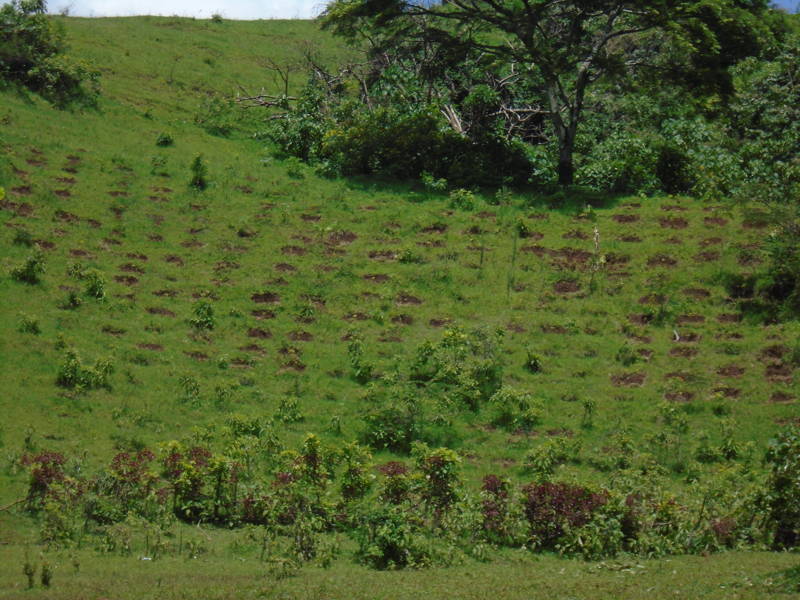
Households have all built their own pit latrine
Such a toilet collects human excreta in a pit. Generally, it consists of this very pit, a plate with a hole above it and a protection, usually a cabin, which surrounds everything. The construction of such a toilet is not so simple, because the construction of the pit is subject to strict regulations, so that later no groundwater is contaminated. In addition, it is necessary to consider how and when the pit will be emptied, and so on. In all households there is now the possibility for everyone to use a toilet instead of having to go to the toilet outside. It is also great that the toilets were built from local materials, e.g. wood on site. This contributes to the sustainable use of the toilets, as they can be repaired quickly!
School-WASH: Establishment and supervision of school hygiene and sanitation clubs.
So-called WASH clubs have been established and trained by each of the five kebeles. In hygiene promotion, schools are a focus of change in the village community. Therefore, there is a special focus on them. The training is designed to improve access to and use of WASH facilities (i.e., anything where water, sanitation, and hygiene come into play, such as toilets, hand-washing facilities, drinking water) in the school. The training is called „School-WASH“: it revolved around ways to provide access to WASH facilities, resources to use these facilities appropriately, and methods of raising awareness about hygiene in schools.
Establishment of WaSH clubs and training of trainers.
Five school clubs were established in Mana and Seka-Chekorsa districts and a Training of Trainers (ToT) was given in two sessions. The training lasted three days in both districts. A total of 29 residents participated. At the end of the training, each WASH club prepared their action plan. These newly trained trainers will be able to share their knowledge with many other residents to increase hygiene awareness, especially in schools. The trainings further strengthen the reach of the information as the children carry the knowledge to their families at home.
Challenges
Due to the many meetings at Kebele (village government) and Woreda (district) levels where important decisions were made about the WASH project, there were delays in digging the trenches for the water pipes and installing them. For the community, the water from the spring is sacred. Therefore, many people come to the spring to be cured of health ailments.
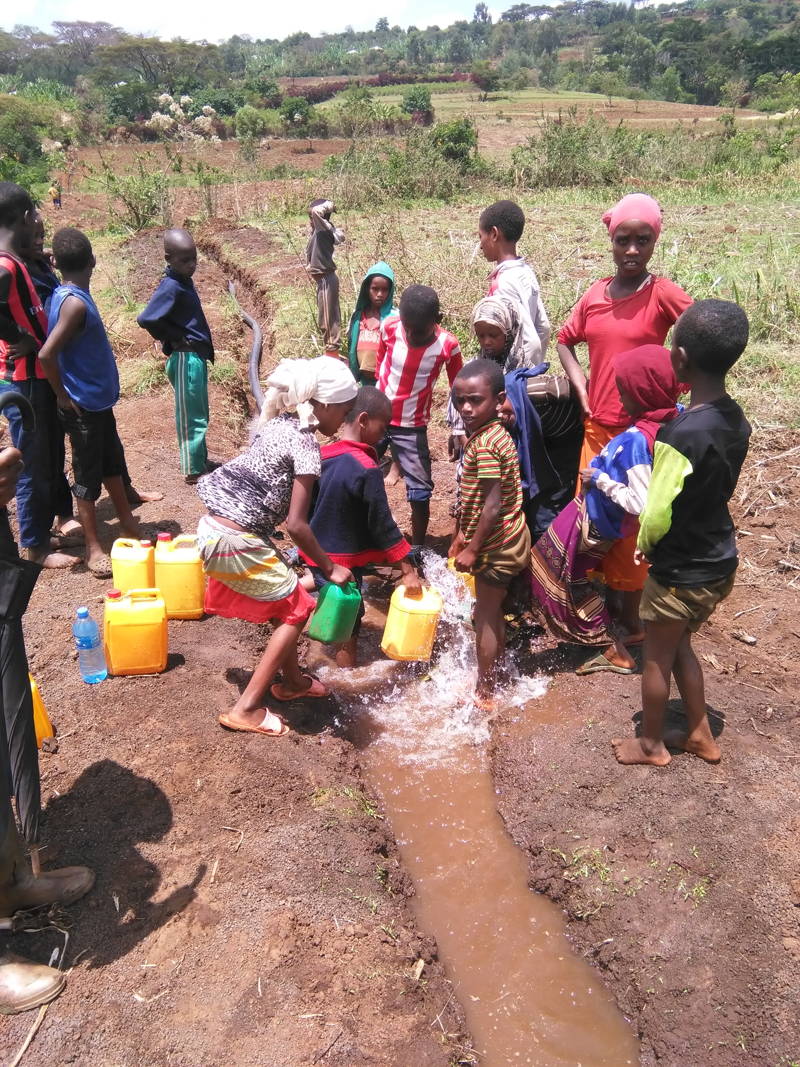
If you also want to support the projects in Ethiopia, you can order our coffee here. 1 € per kilogram sold goes 100% to the projects. In the shopping cart you can decide which of the projects you want to support.


